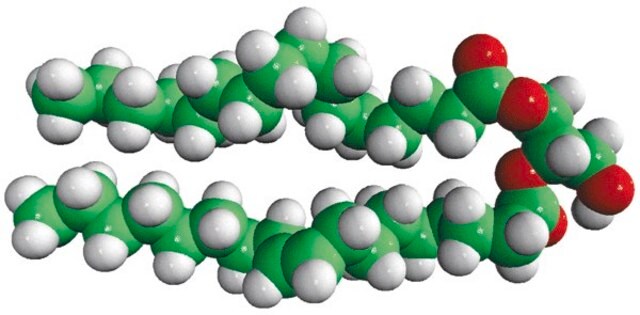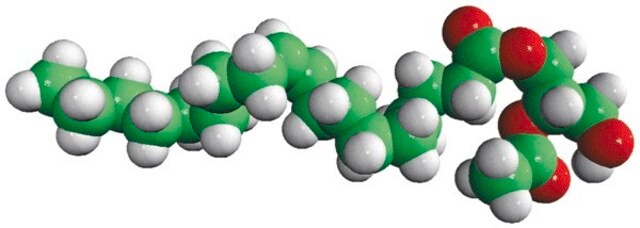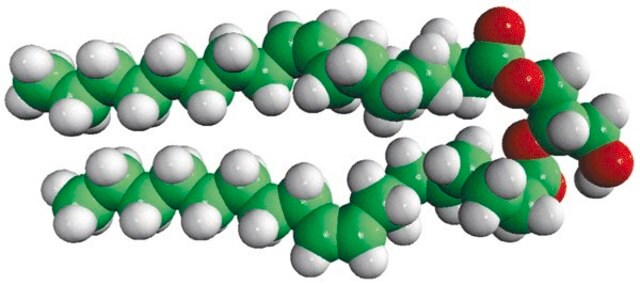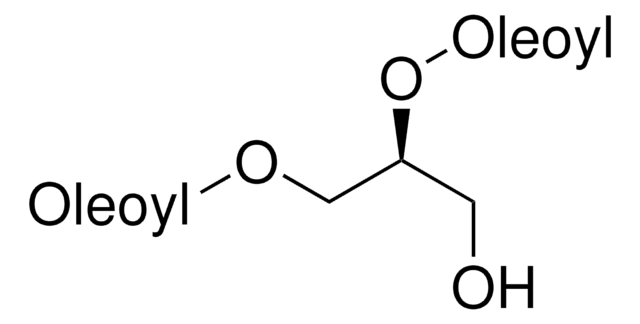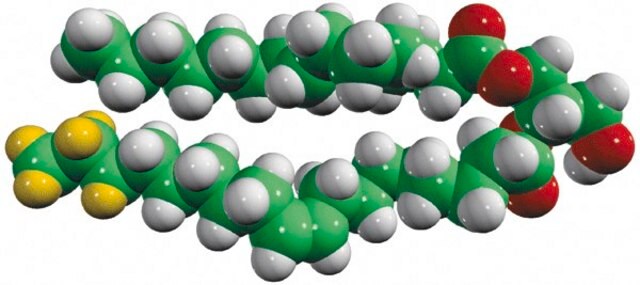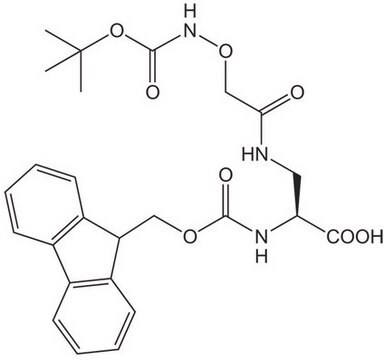800100O
Avanti
18:1-2:0 DG
1-oleoyl-2-acetyl-sn-glycerol, neat oil
Synonym(s):
1--(9Z-octadecenoyl)-2-acetoyl-sn-glycerol; DG(18:1(9Z)/2:0/0:0); OAG
About This Item
Recommended Products
Assay
>99% (TLC)
form
liquid
packaging
pkg of 1 × 10 mg (with screw cap (800100O-10mg))
pkg of 1 × 25 mg (with screw cap (800100O-25mg))
manufacturer/tradename
Avanti Research™ - A Croda Brand 800100O
lipid type
neutral glycerides
neutral lipids
shipped in
dry ice
storage temp.
−20°C
InChI
1S/C23H42O5/c1-3-4-5-6-7-8-9-10-11-12-13-14-15-16-17-18-23(26)27-20-22(19-24)28-21(2)25/h10-11,22,24H,3-9,12-20H2,1-2H3/b11-10-/t22-/m0/s1
InChI key
PWTCCMJTPHCGMS-YRBAHSOBSA-N
General description
Application
- in the induction of superoxide generation in neutrophils
- as a substrate for platelet-activating factor acetyl hydrolases
- as a protein kinase C (PKC) activator in adrenal glands
Biochem/physiol Actions
Packaging
Storage and Stability
Other Notes
Legal Information
Storage Class Code
10 - Combustible liquids
WGK
WGK 3
Flash Point(F)
Not applicable
Flash Point(C)
Not applicable
Regulatory Listings
Regulatory Listings are mainly provided for chemical products. Only limited information can be provided here for non-chemical products. No entry means none of the components are listed. It is the user’s obligation to ensure the safe and legal use of the product.
JAN Code
800100O-25MG:
800100O-10MG:
800100O-BULK:
800100O-VAR:
Certificates of Analysis (COA)
Search for Certificates of Analysis (COA) by entering the products Lot/Batch Number. Lot and Batch Numbers can be found on a product’s label following the words ‘Lot’ or ‘Batch’.
Already Own This Product?
Find documentation for the products that you have recently purchased in the Document Library.
Our team of scientists has experience in all areas of research including Life Science, Material Science, Chemical Synthesis, Chromatography, Analytical and many others.
Contact Technical Service
